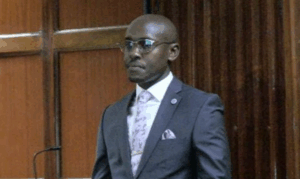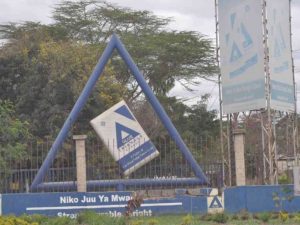Blockchain Is The Solution To Logistics Problems – Kenya’s TMX Global

Blockchain technology and Hyperlocal logistics is efficient and sustainable and will offer answers to the
problems that have been plaguing the transportation industry in Kenya, TMX Global Logistics Kenya has said.
This was announced by TMX Global Logistic CEO Anthony Njoroge who spoke to stakeholders during the Clearing, Forwarding and Logistic Agents meeting in a Nairobi hotel.
“My aim is to revolutionize the Kenyan trade industry through a global community, thanks to the blockchain technology, which guarantees transaction ledgers, immutability, consensus drive, decentralization, security by cryptography and transparency,” he stated.
“International shipping needs a more secure and transparent way to handle the information exchanged between parties. My goal is to advance this blockchain-enabled innovation and work with an expanded group of industry players to create a unique shipping platform for a broad set of information capture and distribution. This collaborative platform which will provide an industrialized, secure and scalable approach for the shipment process—and we believe it will trigger a significant transformation of the shipping industry,” he added.
Read: Kenya’s TMX Global Coin Listed As Africa’s Hottest Ventures In Blockchain Technology
According to TMX, a significant gap exists between availability of solutions for the problems in the freight forwarding, clearing and logistics industry.
“With high demands stemming from our economy, cargo handling has been having increasing demands each year. Development calls for increased efficiency in cargo handling, clearing and forwarding,” reads a statement from TMX.
Currently, there exists challenges in the industry, among them being fraud, delay of products, tracing and tracking of cargo, high expenses and lack of transparency.
A typical cross-border transaction involves multiple parties including exporters, importers, freight and
logistics companies such as forwarders and ocean carriers, banks, ports, insurers and customs authorities,
and can require the creation and exchange up to 15 separate documents for a single shipment.
“But now a new technology in the form of blockchain has changed the dynamics,” says Mr Njoroge.








